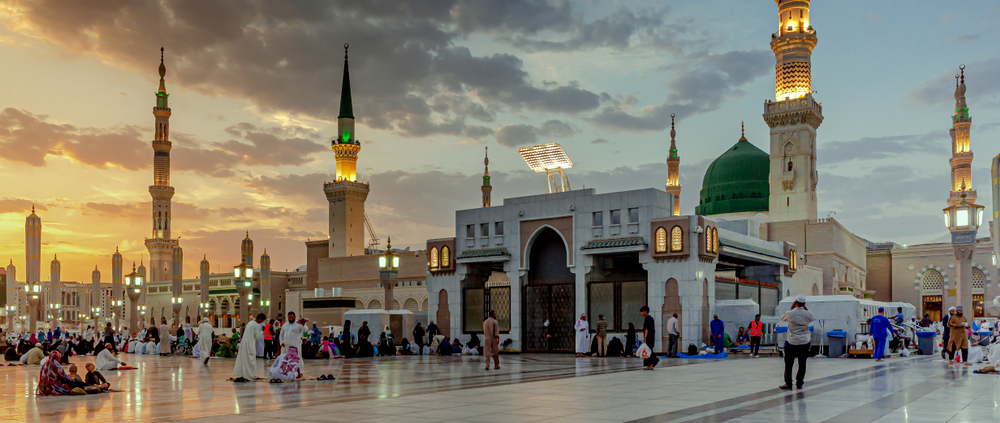How Did the Prophet (Allah Bless and Give Him Peace) Know There Would Be No More Ceasars?
Answered by Shaykh Irshaad Sedick
Question
I have developed some doubts. There is a hadith about not having another Caesar after Caesar.
Imam Shafi’i said: “The Prophet (Allah bless him and give him peace) was prompted into making this statement because the Quraysh used to come to Iraq and Syria as traders. When they embraced Islam, they feared they would be prevented from entering these two regions because they accepted Islam. So, the Messenger of Allah (Allah bless him and give him peace) made this statement to relieve their fears and to give them good tidings that Roman and Persian (non-Muslim) control over the two regions (Syria & Iraq) shall come to an end.”
But how could he (Allah bless him and give him peace) have known this?
Answer
In the Name of Allah, the Most Merciful and Compassionate. May Allah alleviate our difficulties and guide us to that which is pleasing to Him. Amin.
The hadith is authentic, and the prophecy was proven true. There should be no surprise in this for a believing Muslim, as prophecies and miracles are expected from Prophets, and Allah knows best.
We suggest that you study traditional theology (Aqida) and the authentic biography (Sira) of the Prophet (Allah bless him and give him peace). You will find courses on these disciplines on SeekersGuidance, such as:
What Muslims Believe and Why: Dardir’s Kharida al-Bahiyya
Know the Best of Creation: The Life of Prophet Muhammad
The Hadith and Its Sources
The hadith in question is reported by Imam Bukhari and Imam Muslim (Allah have mercy on them) that the Prophet (Allah bless him and give him peace) said, “Khosrau will be ruined, and there will be no Khosrau after him, and Caesar will surely be ruined, and there will be no Caesar after him, and you will spend their treasures in Allah’s Cause.” [Bukhari; Muslim]
The Prophecy, Realized
Indeed, the final Khosrau who rose to power during the Prophet’s (Allah bless him and give him peace) life was Yazdegerd III (d. 651), and he became the 38th and final king of the Sassanid Empire. The final Caesar during the Prophet’s (Allah bless him and give him peace) life was Heraclius (d. 641), and Byzantium did, in fact, collapse and lose Christendom’s holiest site of Jerusalem during his reign. After those individuals, neither empire maintained any presence in those two regions. [Abu Rahma, Qurananswers.me]
Imam Shafi’i’s (Allah Have Mercy on Him) Commentary
According to Imam Bayhaqi and Imam Nawawi (Allah be pleased with them), Imam Shafi‘i (Allah have mercy on him) commented that when the Quraysh tribe embraced Islam, they feared being blocked from their trade routes to Greater Syria (Sham) and Iraq because these territories were under Roman and Persian rule, and both were enemies of Islam. Jābir Ibn Samura (Allah be pleased with him) reported the Hadith of the Prophet (Allah bless him and give him peace), who addressed this concern of the new Muslims by reassuring them that those empires would soon vanish from both regions. [Bayhaqi, Dala’il al-Nubuwwa; Nawawi, Sharh Sahih Muslim]
Prophecies and Islam
This is a true prophecy. Even more profound is that the Muslims at the time were relatively weak and in no position to challenge the world’s two major powers (the Roman and Persian Empires), and that too simultaneously and alone. The Prophet (Allah bless him and give him peace) giving the considered-weak people the good news that they would shatter the Roman and the Persian Empires when he said, “you would spend their treasures in Allah’s Cause,” is nothing less than a miracle.
It is not astonishing for a Prophet to prophesize as these prophecies, along with other miracles, served to prove their prophethood. Traditional Islam has always held authentic prophecies as miracles from Allah (Most High), and Allah knows best. [Buti, Fiqh al-Sira]
I pray this is of benefit and that Allah guides us all.
[Shaykh] Irshaad Sedick
Checked and Approved by Shaykh Faraz Rabbani
Shaykh Irshaad Sedick was raised in South Africa in a traditional Muslim family. He graduated from Dar al-Ulum al-Arabiyyah al-Islamiyyah in Strand, Western Cape, under the guidance of the late world-renowned scholar Shaykh Taha Karaan.
Shaykh Irshaad received Ijaza from many luminaries of the Islamic world, including Shaykh Taha Karaan, Mawlana Yusuf Karaan, and Mawlana Abdul Hafeez Makki, among others.
He is the author of the text “The Musnad of Ahmad ibn Hanbal: A Hujjah or not?” He has served as the Director of the Discover Islam Centre and Al Jeem Foundation. For the last five years till present, he has served as the Khatib of Masjid Ar-Rashideen, Mowbray, Cape Town.
Shaykh Irshaad has thirteen years of teaching experience at some of the leading Islamic institutes in Cape Town). He is currently building an Islamic online learning and media platform called ‘Isnad Academy’ and has completed his Master’s degree in the study of Islam at the University of Johannesburg. He has a keen interest in healthy living and fitness.
